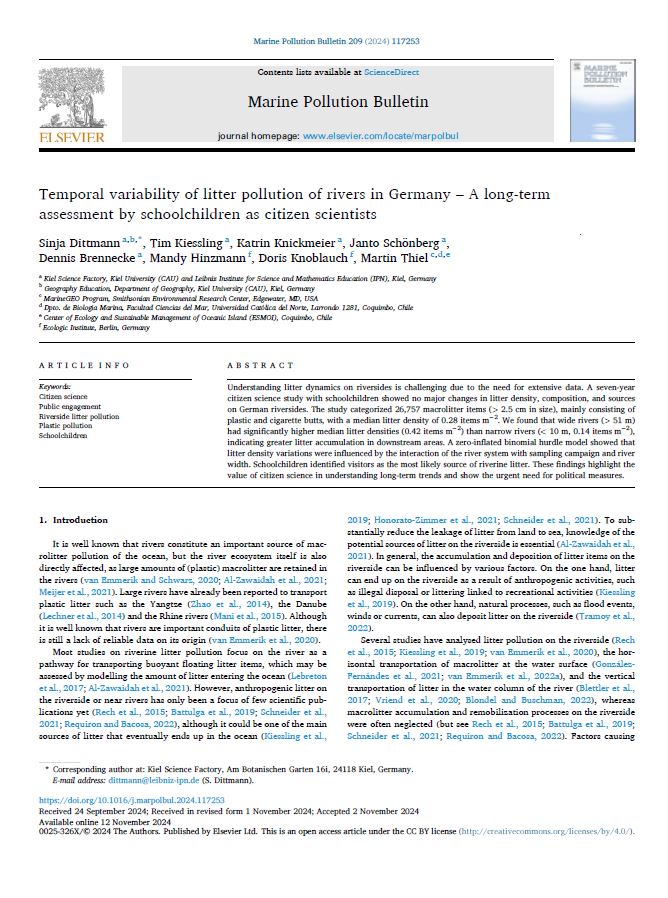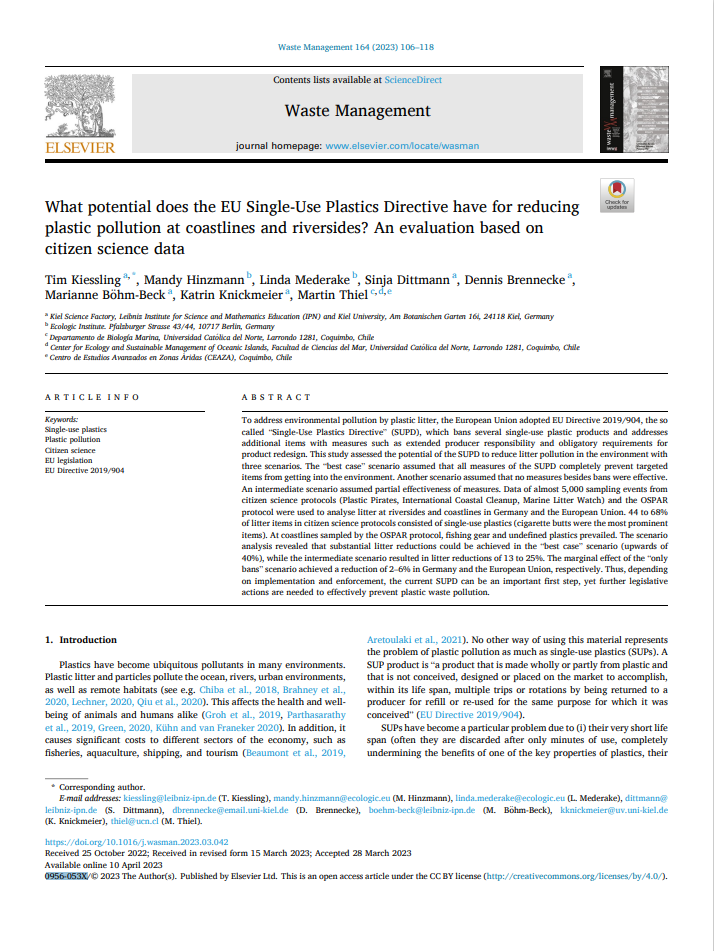Sharing Communication Insights of the Citizen Science Program Plastic Pirates
Best practices from 7 years of engaging schoolchildren and teachers in plastic pollution research
- Publication
- Citation
Dittmann S, Kiessling T, Mederake L, Hinzmann M, Knoblauch D, Böhm-Beck M, Knickmeier K and Thiel M (2023), Sharing communication insights of the citizen science program Plastic Pirates—best practices from 7 years of engaging schoolchildren and teachers in plastic pollution research. Front. Environ. Sci. 11:1233103. doi: 10.3389/fenvs.2023.1233103
Citizen science initiatives are characterized by the fact that they involve the general public in the research process. This allows for innovative scientific studies and makes science accessible to citizens. For the success of such initiatives, it is essential to communicate effectively with the citizen scientists before, during and after sampling.
This article illustrates the communication strategies that were successfully applied in the citizen science program Plastic Pirates in Germany. The program engages schoolchildren, teachers and youth groups in plastic pollution research. A variety of communication strategies have been implemented and continuously revised and adapted since the start of the program in 2016. The article offers insights into the experiences gained and offers recommendations for other citizen science practitioners.
Different phases and objectives for communication with participants were distinguished in the Plastic Pirates program:
- recruiting and motivating participants,
- coordinating and guiding participants prior to data collection,
- receiving and validating data gathered by participants, and
- sharing results of the citizen science program.
The article also discusses challenges for effective communication, such as limited personnel resources and time constraints. The article is the result of a cooperation between the Kiel Science Factory, Universidad Católica del Norte in Coquimbo (Chile) and Ecologic Institute. It was published as a Community Case Study in the Journal Frontiers in Environmental Science in August 2023.

